providing a forum for strategic discussion on international cooperation for research infrastructures at global level;
highlighting the essential role of research infrastructures in addressing global challenges and contributing to sustainable development goals;
reflecting on the needs, development, and operation of global and national research infrastructures;
building on the outcomes of ICRI 2016, discussing existing and emerging challenges faced by RI stakeholders and investigating policy options and possible steps forward.
| Speaker | Presentation |
|---|---|
| Livia Conti and Fred Raab | Gravitational-Wave Astronomy - a Long Time Coming |
| Speaker | Presentation |
|---|---|
| Phil Mjwara | Policy issues and ICRI in context: reflection on the 2016 outcomes |
| Sanja Damjanovic | Setting up a research infrastructure as a multinational venture, Example: South East European International Institute for Sustainable Technologies (SEEIIST) |
| Sean Dougherty | Alma |
| Speaker | Presentation |
|---|---|
| Yuri Balega | Unique scientific equipment in Russia |
| Hongjun Gao | An Introduction to CAS’s NationalMajor Scientific and Technological Infrastructure |
| Gabriele Fioni | Research infrastructures in 30 years' time and how to get there |
| Charlotte Warakaulle | Trends and Directions at CERN |
| Axel Börsch-Supan | Social Science RIs in 30 years and how to get there |
| Tiziana Ferrari | International Data Commons - The future of data exploitation in 30 10 years’ time |
| Helmut Dosch | Proposing a European Partnership in HORIZON EUROPE |
| Speaker | Presentation |
|---|---|
| Catalin Miron | Staff Mobility in Research Infrastructures Status, Incentives and Barriers |
| Jennifer Edmond | The Right People, Wherever They Are |
| Veronica Cesco | RESAVER - A Pan-European Pension Fund for Research Professionals |
| Hiromi Yokoyama | From the experience of evaluating Japanese RI |
| Silke Schumacher | |
| Rahel Fidel | Career Development and Gaps in HR Capabilities |
| Speaker | Presentation |
|---|---|
| Sarawut Sujitjorn | Synchrotron Light Research Institute Thailand - on Prospective of Thailand |
| Lars Börjesson | Swedish perspective: ESS and MAX IV? |
| Speaker | Presentation |
|---|---|
| Giorgio Rossi | Introduction to Plenary Session 5 |
| Jan Hrušák | Summary Plenary Session 1 |
| Catherine Ewart | Summary Plenary Session 2 |
| Maud Evrard | Summary Parallel Session 1 |
| Sabine Hertgen | Summary Parallel Session 2 |
| Frédéric Le Pimpec | Summary Parallel Session 3 |
| Philippe Froissard and Frederic Sgard | Summary Parallel Session 4 |
| Barbara Sánchez Solís and Carthage Smith | Summary Parallel Session 5 |
The detailed programme for ICRI 2018 is available here.
| 11:30 – 13:00 | Registration and welcome coffee |
| 13:00 – 13:20 | Official opening ICRI2018 |
| 13:20 – 14:00 | Keynote speeches |
| 14:00 – 15:15 | Plenary session 1: Policy issues and ICRI in context |
| 15:45 – 17:15 | Plenary session 2: Research infrastructures in 30 years’ time |
| 17:15 – 18:00 | Plenary session 3: The parallel sessions – an overview |
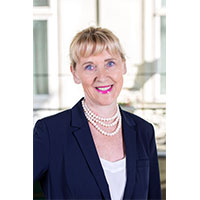
Barbara Weitgruber
Director General for Scientific Research and International Relations, Austrian Federal Ministry of Education, Science and Research (BMBFW). Barbara Weitgruber was founding staff member and Director of the Office for International Relations and lecturer at Karl-Franzens Universität Graz, Austria and then Director of the Office for European Educational Co-operation of the Austrian Academic Exchange Service in Vienna, Austria. In December 1994 she joined the Austrian Ministry in charge of higher education and research as Director and later became Deputy Director General for Higher Education and Director General for Scientific Research and International Relations. She also is a member in numerous committees, including the Task Force for Research, Technology and Innovation of the Austrian Federal Government and the European “Research Policy Group” and chairs the Austrian Fulbright Commission as well as the Scholarship Foundation of the Republic of Austria.
Jean-David Malo
Jean-David Malo studied in the Institut National Supérieur des Sciences Economiques et Commerciales (Paris) and the University of California (Berkeley). He joined the European Commission in January 2001. From 2003 to 2006, he was the assistant of Director Robert-Jan SMITS. After heading the unit in charge of the regional aspects of FP7, he was managing from 2011 to 2013 a newly created unit in DG Research and Innovation on increasing private finance and closing market gaps in investing in research and innovation. On February 2017 he has been appointed as Director of the Directorate in charge of "Open Innovation and Open Science".
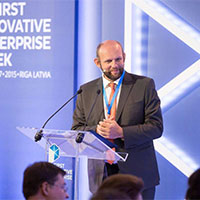
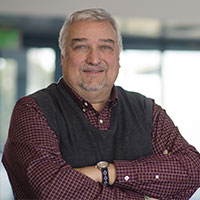
Fred Raab
Dr. Fred Raab is the Associate Director for Observatory Operations for the LIGO Laboratory, which operates LIGO Hanford Observatory, LIGO Livingston Observatory and the LIGO support programs at Caltech and MIT for the U.S. National Science Foundation. He earned his Ph.D. in Physics in 1980 at the State University of New York at Stony Brook. He worked as a Research Scientist at the University of Washington and later as Assistant Professor of Physics at the California Institute of Technology, where he co-authored the LIGO construction proposal. He served as Head of LIGO Hanford Observatory from 1995 - 2016. He is a Fellow of the American Physical Society and the Optical Society of America.
Livia Conti
Dr Livia Conti graduated in Physics at the University of Padova in 1996 and earned the PhD at the University of Trento in 2000. She is researcher at Istituto Nazionale di Fisica Nucleare (INFN) in Padova since 2008. Her interests focus on Gravitational Wave (GW) science. Firstly she joined the GW bar detector AURIGA; in 2001 she proposed a new type of GW detector, the Dual Sphere, and pursed an R&D to assess its feasibility. In 2008 she was awarded a Starting Grant from the European Research Council to study properties of thermal noise in solids kept in states out of equilibrium, with a focus on GW detectors. In 2014 she joined the Virgo collaboration, running the GW intereformetric detector Advanced Virgo, and in 2018 the Einstein Telescope collaboration. She is also active in science dissemination.
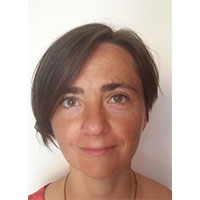
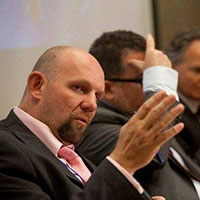
Jean-David Malo
Jean-David Malo studied in the Institut National Supérieur des Sciences Economiques et Commerciales (Paris) and the University of California (Berkeley). He joined the European Commission in January 2001. From 2003 to 2006, he was the assistant of Director Robert-Jan SMITS. After heading the unit in charge of the regional aspects of FP7, he was managing from 2011 to 2013 a newly created unit in DG Research and Innovation on increasing private finance and closing market gaps in investing in research and innovation. On February 2017 he has been appointed as Director of the Directorate in charge of "Open Innovation and Open Science".
Jan Hrušák
Jan Hrušák is senior research fellow and scientific advisor at the Czech Academy of Sciences. He completed studies in physical chemistry and received PhD (Dr.rer.nat) in 1987 at the Technical University Leuna-Merseburg (Germany). In 1995 he accepted a position at the J. Heyrovský Institute of Physical Chemistry, where he is working since. Jan Hrušák contributed to c. 100 scientific papers, which received over 3500 citations. Jan Hrušák served two terms in the executive body (Presidium) of the Czech Academy of Sciences, and he has been appointed for two years Director general for research at the Ministry of Education, youth and sport of the Czech Republic (MEYS). He is longstanding ESFRI member (currently vice-chair), and the Czech delegate to ERAC.
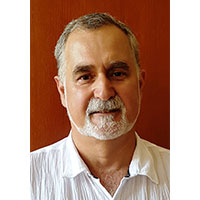
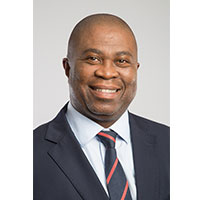
Phil Mjwara
Dr Phil Mjwara has served as the Director General of the Department of Science and Technology (DST) since April 2006. Prior to his appointment at DST, Dr Mjwara was the Group Executive: Research and Development; Strategic Human Capital Development at the Council for Scientific and Industrial Research (CSIR). In 2001, Dr Mjwara joined the National Laser Centre (NLC) as its head, where he has been instrumental in growing the centre's activities since its inception and in creating a network of centres in Africa, i.e. African Laser Centre (ALC). Dr Mjwara has served on various advisory councils and review boards. He currently serves on the Board of the World of Platinum of South Africa. He also served on the Council of the University of Johannesburg. He was also a Co-Chair for the Group on Earth Observations (GEO) between 2006 until 2017.
Karina Angelieva
Karina Angelieva is a Deputy Minister for Education and Science with portfolio on research and innovation policies as well as Structural funds. She has been Counsellor, Head of Sector Education and Research at the Permanent Representation of the Republic of Bulgaria to the EU. Ms Angelieva holds Master degrees in European integration and in Contemporary History from Sofia University “Saint Kliment Ohridski”. Previous positions held include Director-General Structural Funds and International Educational Programmes at the Bulgarian Ministry of Education and Science and Director of the Joint Innovation Centre at the Bulgarian Academy of Sciences. Karina is a founder of the Club of Young Scientists in Bulgaria and has been for 10 years in charge of the coordination of National contact points’ network for the EU Framework Programme for Research and Innovation.
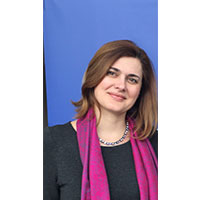
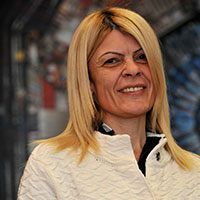
Sanja Damjanović
Born in Montenegro. Study of physics at the University of Belgrade. Doctoral studies in physics with a Dr. rer. nat at the Ruprecht-Karls University, Heidelberg, Germany. Post-doctoral positions with research at CERN, Geneva, first within a cooperation treaty between the University of Heidelberg and GSI, Darmstadt, followed by award-type positions at CERN including a Fellowship and a Scientific Associateship. Involved both in basic and applied research in the field of high-energy physics. Since 2014 staff position in the Accelerator Department of GSI-FAIR, Darmstadt. At the end of 2016 appointed as Minister of Science of Montenegro in the new Government of Prime Minister Mr. Dusko Markovic.
Sean Dougherty
Sean Dougherty is the Director of the Atacama Large Millimetre Array, the world’s foremost millimeter/submillimeter interferometer array located at 5000m altitude in the Atacama desert in northern Chile. Prior to his move to Chile he was Director at the Dominion Radio Astrophysical Observatory, Canada's national radio astronomy facility and part of the National Research Council's Herzberg Institute for Astrophysics. He has served on many science and engineering advisory committees for large radio astronomy projects. He is originally from the UK where he obtained a BSc in Maths and Physics before moving to Calgary, Canada for post-graduate studies in Applied Geophysics (MSc) and Astrophysics (PhD) and to pursue his passion for mountain climbing. He currently lives in Santiago, Chile.
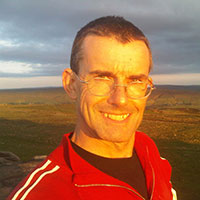
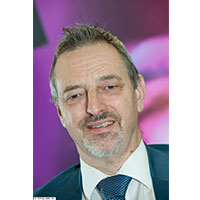
Tony Donné
Tony Donné is Programme Manager (CEO) of EUROfusion, the consortium coordinating European research in the field of fusion science and technology in 28 European countries. From July 2018 onwards he is chairing for one year the EIROforum consortium comprising CERN, EMBL, ESA, ESO, ESRF, EUROfusion, ILL, and XFEL. Until June 2014 he worked at the Dutch Institute for Fundamental Energy Research in many duties including director of the Fusion Research Division and acting director of the institute. Tony was founding director of the Dutch-Russian ‘’Centre of Excellence on Fusion Physics and Technology’’ and programme director of the ITER-NL consortium. A substantial part of his scientific career was devoted to the design and use of plasma diagnostics at various fusion devices. He coordinated over 10 years the international activities in the field of diagnostics for the international ITER experiment.
Ilaria Nardello
Dr. Ilaria Nardello is the Executive Director of the "European Marine Biological Resources Centre (EMBRC-ERIC)", a distributed, pan-European Research Infrastructure consortium, aiming to respond to the societal Grand Challenges through advanced marine biology and ecology research. A bio-optical oceanographer with thirteen years of international research experience, she initially led a series of industry-oriented activities. She went on to be a founder and chief executive officer of the "Biomarine International Clusters Association” (B.I.C.A.) in Monaco, to develop and organise the economic value of sustainable and innovative value-chains from marine bioresources. She holds a Ph.D. in Ecology and Management of the Biological Resources and is an author in "Renewable Matter”, an international magazine on the bioeconomy and circular economy.
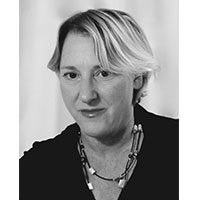
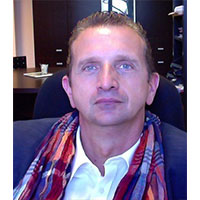
Luca Pezzati
Coordinator of the ESFRI Project E-RIHS-European Research Infrastructure for Heritage Science and of its preparatory phase project, E-RIHS PP. Also coordinator of the Integrating Activity project IPERION CH-Integrated Project for the European Research Infrastructure ON Cultural Heritage funded by the EC on H2020-INFRAIA-2014. He has been national coordinator for five years, until 2016, of DARIAH-IT, the Italian node of DARIAH ERIC, Digital Research Infrastructure for the Arts and Humanities. Also, he started up the Italian node of E-RIHS and coordinated it until 2017. Physicist and optics specialist, he is senior researcher at INO-CNR (the National Institute for Optics of the National Research Council of Italy, http://www.cnr.it). Director of the Research Unit in Lecce from 2003 to 2016.
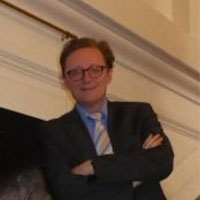
Daniel Weselka
Daniel Weselka joined the Federal Ministry for Science in 2001 and is since 2006 director of department, at present named „Basic Research (STEM) and Research Infrastructures“ in the Federal Ministry of Education, Science and Research (BMBWF). He represents Austria in many European and international organizations and fora like ESO, GSF/OECD, ESFRI, JRC, Euratom, F4E. He owns a diploma and PhD in physics and affords the luxury of a real cat.
Catherine Ewart
Catherine has over twenty-five years’ experience in the UK research system in change leadership, strategy, communications and government affairs roles. In 2014 Catherine was seconded to the Department for Business, Innovation and Skills, where she helped to develop “Our Plan for Growth”, the UK Government’s Strategy for Science and Innovation. Catherine represents the UK as a research infrastructure (RI) expert on international forums such as the OECD Global Science Forum and the G7 Group of Senior Officials on Global Research Infrastructures (GSO). Catherine is a member of the Board of the UK Research Office (UKRO) in Brussels.
She is also a member of the Strategic Advisory Board for the School of Physics and Astronomy at the University of Nottingham and represents the UK on the E-RIHS (European Research Infrastructure for Heritage Science) Stakeholder Advisory Board.
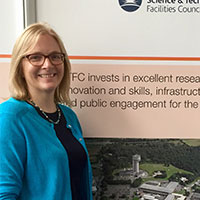
Yuri Balega
TBC
Hongjun Gao
Dr. Hongjun Gao started his research career as a physicist from 1994 at the Institute of Physics, Chinese Academy of Sciences and then spent three years at the US Oak Ridge National Laboratory (ORNL) as a guest scientist from 1997 to 2000. He was elected as a Member of the Chinese Academy of Sciences in 2011, and a Member the World Academy of Sciences for the advancement of science in developing countries (TWAS) in 2012. Now he is also serving as the Director-general at the CAS Bureau of Frontier Sciences and Education. Aside from the Associate Editor for Appl. Phys. Lett., Dr. Gao has served at many important scientific committees, including the former Vice President of the University of Chinese Academy of Sciences (UCAS), the former Chair of the UCAS Advisory Committee of Sciences, the former Scientific Secretary of the International Union of Vacuum Science, Technology, and Applications (IUVSTA) from 2004 to 2007, the former Chairman of the NSTD, IUVSTA from 2010 to 2013, and has been very active in international collaboration for physics.
Dr. Gao’s primary research interest has been in construction and physical properties of quantum nanostructures and scanning tunneling microscopy/spectroscopy (STM/STS).
He has received the Overseas Chinese Physics Association, Achievement in Asia Award (OCPA AAA, Robert Prize, in 2008), the TWAS Prize in Physics (2009), the Humboldt Research Award (2010), the Science and Technology Awards of the Ho Leung Ho Lee (2012), the Outstanding Science and Technology Achievement Prize of the Chinese Academy of Sciences (2013) and the Tan Kah Kee Science Awards (2018).
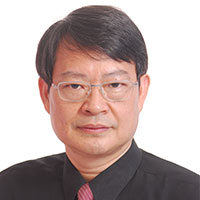
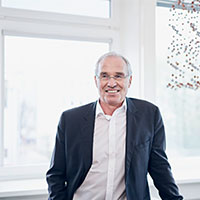
Helmut Dosch
Helmut Dosch, born in 1955, is a solid state physicist and Chairman of the Board of Directors of DESY in Hamburg. After studying and obtaining his doctorate in physics in Munich and working at Cornell University and the University of Wuppertal, he was Director at the Max Planck Institute for Metal Research in Stuttgart before moving to Hamburg in 2009. He is an expert in the use of synchrotron radiation to study surface and interface phenomena. Dosch became internationally known for his pioneering work in the field of phase transitions on surfaces, in particular his work on surface melting of ice and on critical phenomena at alloy interfaces. Dosch has received several awards for his research, including the Röntgen plaque of the city of Remscheid and an honorary doctorate from the Kurchatov Institute in Moscow. Since 2013, Helmut Dosch serves as Vice President of the Helmholtz Association.
Tiziana Ferrari
Tiziana is Technical Director at the EGI Foundation, the coordinating body of EGI, the federated e-Infrastructure set up to provide advanced computing services for data-driven research and innovation. Through its partners at European and international level and strategic collaborations with research infrastructures, EGI leads innovation in high-throughput computing, cloud, data management and security. Since January 2018, she is project coordinator of EOSC-hub, the EC funded project bringing together an extensive group of national and international service providers and research infrastructures to create the EOSC Hub: a central contact point for European researchers and innovators to discover, access, use and reuse a broad spectrum of resources for advanced data-driven research. Tiziana holds a PhD in Electronics and Data Communications Engineering from the Universita’ degli Studi in Bologna.
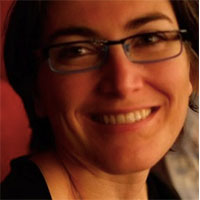
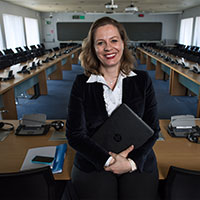
Charlotte Warakaulle
Since 2001 Charlotte Warakaulle has held a variety of posts at the United Nations, from associate speechwriter to chief of the Political Affairs and Partnerships Section at the United Nations Office at Geneva.
Most recently she held the position of chief of the United Nations Library in Geneva, where she was responsible for library services, knowledge management, cultural diplomacy and intellectual outreach.
Prior to her work with the United Nations, Warakaulle held a Carlsberg Visiting Research Fellowship at Lucy Cavendish College at the University of Cambridge from 1998 to 2001.
During her time at the University of Cambridge, she also served as editor-in-chief of the Cambridge Review of International Affairs, a peer-reviewed international affairs journal then published by the Centre of International Studies at the University of Cambridge.
She gained her M.Phil in international relations at the University of Cambridge (Pembroke College) and also holds an MA in history (cand.mag.) from the University of Copenhagen, as well as an MA in history (coursework) from the University of Sydney and a BA in history from the University of Copenhagen.
Axel Börsch-Supan
Axel Börsch-Supan studied economics and mathematics in Munich and Bonn and received a doctorate in economics from MIT (Cambridge, USA) in 1984. After working as an assistant professor of public policy at Harvard University (1984-1987) and as professor of economic theory at the University of Dortmund (1987-1989), he was professor of macroeconomics and economic policy at the University of Mannheim (1989-2011). In 2011, he became Full Professor of the Chair for the Economics of Aging at the Technical University of Munich (TUM) in 2011. In his role as director of the Max Planck Institute for Social Law and Social Policy in Munich, he has been heading the Munich Center for the Economics of Aging (MEA) since 2011. He also is Managing Director of the Survey of Health, Ageing and Retirement in Europe (SHARE). Professor Börsch-Supan is a full member of the Berlin-Brandenburg Academy of Sciences, German National Academy of Sciences Leopoldina and a corresponding member of the Austrian Academy of Sciences.
Professor Börsch-Supan is a member of the Council of Advisors to the German Economics Ministry (chair 2004-08), a member of the German federal governments’ Expert Group on Demography, member of the Pension Commission and has served as a consultant to the European Commission, the World Bank, the OECD and several foreign governments.
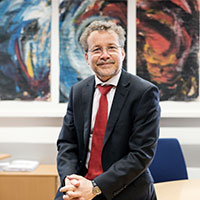
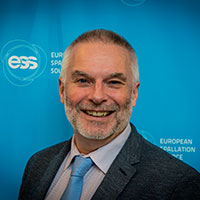
John Womersley
Professor John Womersley is Director General of the European Spallation Source (ESS), a European intergovernmental laboratory under construction in Lund, Sweden that will start user science operation in 2023. Before moving to ESS, Prof. Womersley held the position of Chief Executive of the Science and Technology Facilities Council (STFC), the United Kingdom's funding agency for, for large scale science facilities and national laboratories, particle physics, nuclear physics and astronomy. He has served on the councils of CERN and ESO, the Fermilab (FRA) Board and the board of AURA. John has chaired the European Strategy Forum on Research Infrastructures (ESFRI) and also served on numerous review panels and boards as an expert
Roseann O’Reilly Runte
Dr. Roseann O’Reilly Runte is the fifth President and CEO of the Canada Foundation for Innovation. Dr. Runte has previously served as President and Vice-Chancellor at Carleton University, President of l’Université Sainte-Anne, Principal of Glendon College, President of Victoria University and of Old Dominion University. She graduated with a B.A. summa cum laude in French from the State University of New York and obtained her M.A. and Ph.D. from the University of Kansas. Dr. Runte has served on numerous boards and commissions in Canada and the United States. She is a member of both the European and the World Academies of Arts and Sciences.
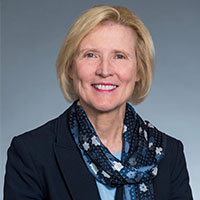
| 9:00 - 9:30 | Heinz Faßmann, Federal Minister for Education, Science and Research Carlos Moedas, European Commissioner for Research, Science and Innovation |
| 9:30 - 11:00 | Parallel sessions |
| 11:00 - 11:30 | Coffee break |
| 11:30 - 13:00 | Parallel sessions |
| 13:00 - 14:00 | Lunch break |
| 14:00 - 15:30 | Parallel sessions |
| 15:30 - 16:00 | Coffee break |
| 16:00 - 17:30 | Parallel sessions |
| 17:30 - 18:00 | Cocktail at Hofburg |
| 18:00 - 22:00 | ICRI official dinner at a Viennese Heuriger |
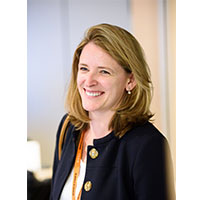
Maryline Fiaschi
Maryline Fiaschi, Managing Director, Science|Business After six years managing EU education programmes with the European Commission, Maryline entered the media business in 2007. She held business development positions at Shanghai Daily and EU affairs media company EurActiv. She joined Science|Business in 2011 where she now leads the company’s operations and growth strategy. She is also an external evaluator for several EU higher education and research & innovation programmes. Maryline holds degrees from Université La Sorbonne, Università di Bologna and Université Catholique de Louvain.
Heinz Faßmann
Federal Minister Heinz Fassmann has been Minister of Education, Science and Research since December 2017. Before he was Professor of Applied Geography, Spatial Research and Regional Planning at the University of Vienna. In 2006 he became dean of the Faculty of Earth Sciences, Geography and Astronomy, in 2011 Vice Rector for Human Resource Development and International Relations and in 2015 Vice Rector for Research and International Affairs.
Minister Fassmann was chairman of the expert board for integration in the Austrian Federal Ministry for Europe, Integration and Foreign Affairs. He is a founding member of the German Advisory Council on Integration and Migration in Berlin and member of the Migration Commission in the Austrian Federal Ministry of the Interior. Furthermore, he is a full member of the Austrian Academy of Sciences and of the Academia Europaea.
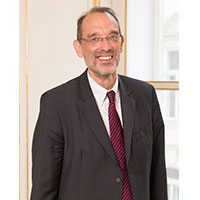
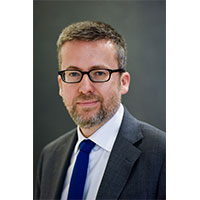
Carlos Moedas
Carlos Moedas was born in Beja (Portugal) in 1970. He graduated in Civil Engineering from the Higher Technical Institute (IST) in 1993 and completed the final year of studies at the École Nationale des Ponts et Chaussées in Paris (France). He worked in engineering for the Suez-Lyonnaise des Eaux group in France until 1998. He obtained an MBA from Harvard Business School (USA) in 2000, after which he returned to Europe to work in mergers and acquisitions at investment bank Goldman Sachs in London (UK). He returned to Portugal in 2004 as Managing Director of Aguirre Newman and member of the Executive Board of Aguirre Newman in Spain. In 2008, he founded his own investment company, Crimson Investment management. In 2011, he's elected for the National Parliament and was called for the government to Secretary of State to the Prime Minister of Portugal in charge of the Portuguese Adjustment Programme. In 2014, he became Member of the European Commission, as Commissioner in charge of Research, Science and Innovation.
As the global research landscape becomes increasingly interconnected, there is growing interest in internationalizing research infrastructures so that they can better serve a wider range of researchers across numerous disciplines as they join forces to tackle global challenges. This need for both trans-national access and international sharing of results creates a number of difficult challenges for governments, their funding agencies, institutions and researchers. The purpose of this session is to identify these challenges and discuss ways to address them.
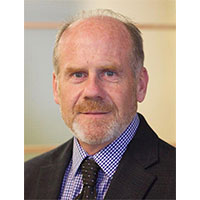
David Moorman
David Moorman is the Canada Foundation for Innovation’s Senior Advisor for Policy and Planning. Dr. Moorman has over 15 years’ experience developing and implementing S&T policies. As the CFI’s Senior Advisor, Dr. Moorman assists with the development and planning of new research infrastructure support programs and related policies. Dr. Moorman represents the CFI in various fora, both domestic and international, and has organized a number of conferences, workshops and consultations. Dr. Moorman holds a Ph.D in Canadian History from the University of Ottawa. He has extensive experience in international S&T affairs, including working with the OECD, various national research support agencies and with the European Commission on common issues related to research infrastructure.
Maud Evrard
Maud Evrard is an expert in research policy at the pan-European and global levels, she has 12 year experience in membership based organisations in various positions. She currently is Head of Policy Affairs at Science Europe, a non-profit organisation based in Brussels representing major Research Funding and Research Performing Organisations across Europe. She coordinates the association’s policy activities and resulting advocacy work. In recent years, Maud has been engaged in Research Infrastructures (RIs) related debates with various partners (e.g. Global Science Forum, European Commission) on various topics (e.g. Portfolio management of RIs, Access to RIs, Long-term sustainability of RIs).
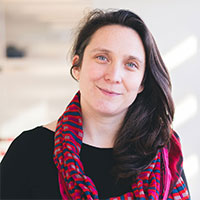

Barbara Ryan
Under Barbara J. Ryan’s leadership, millions of satellite images and other Earth observation data have been made available to the general public at no charge, allowing scientists, planners and policy makers to make better-informed decisions on problems that transcend political boundaries. Her work addresses critical issues in agriculture, biodiversity, climate change, disaster planning, energy, health and water. From 2012 to 2018, Ryan was the Secretariat Director of the intergovernmental Group on Earth Observations (GEO) in Geneva, Switzerland, an organization comprised of 104 Member States, including the European Commission, and 126 international scientific, technical and development partner organizations.
Kathleen Shearer
Kathleen Shearer is the Executive Director of the Confederation of Open Access Repositories (COAR), an international association of over 140 institutions worldwide from 40 countries on all 6 continents representing libraries, universities, research institutions, government funders and others. COAR works towards greater alignment and interoperability of repositories and repository networks around the world. The aim is to develop a sustainable, distributed infrastructure to support open science that reflects the diversity of needs across disciplines and countries, but is also networked and integrated globally. Shearer has her Masters of Library and Information Studies from McGill University in Montreal and also serves as a part time research associate with the Canadian Association of Research Libraries (CARL) and a strategic consultant with the US-based Association of Research Libraries (ARL). She has authored numerous publications and delivers presentations around the world to support the COAR vision.
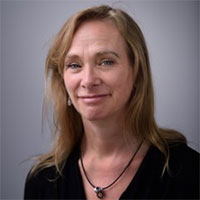
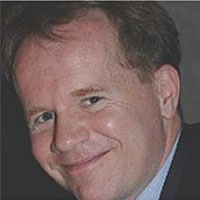
Pierrick Fillon
Pierrick Fillon-Ashida works at the European Commission HQ (Brussels) within the Research DG - in charge of international cooperation South East Asia. He also supervises sector issues related to International affairs on infrastructures, innovation and ICT. Pierrick has been working for 22 years within the EU Institutions, as Head of the S&T Section at the EU Embassy in Japan being involved in agreements negotiations, in particular in relation to large infrastructures such as ITER on nuclear fusion. Earlier career included the DG Information Society (field of health and telecom) and DG Enterprise. Pierrick worked for the industry in Europe and Japan (Hitachi group, EADS and SCHERING). Pierrick is multi-lingual (Japanese, Chinese, EU languages), completed his postgraduate studies in Computing (Durham University –UK), and engineering degrees at Technische Universität Berlin and at the University of Technology of Compiègne. He is board member of the think-tank Club of Rome, EU chapter.
Horia Hangan
Professor Horia Hangan is the Director of the Wind Engineering, Energy and Environment Research Institute (WindEEE RI) and a Full Professor at Western University in London, Ontario. His research is focused on the simulation and impact of high intensity winds including downbursts and tornados, as well as wind energy and wind environmental aspects. After obtaining his Ph.D. in Wind Engineering at Western’s Boundary Layer Wind Tunnel Laboratory in 1996, he pursued his postdoctoral studies at the Université de Poitiers in France. In 1997, Professor Hangan joined the University of Western Ontario as a faculty member in the Department of Civil and Environmental Engineering with cross-appointment in the Department of Mechanical and Materials Engineering.
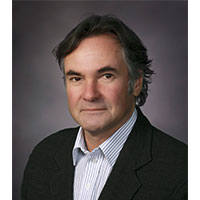
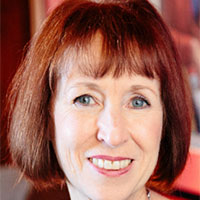
Beryl Morris
Dr Beryl Morris is Director of TERN, an Australian Government research infrastructure initiative for observing, recording and measuring critical terrestrial ecosystem parameters and conditions for Australia over time from continental scale to field sites at hundreds of representative locations. Beryl has been the CEO of several companies in fields ranging from vaccines to forest biotechnology. She has run national science communication programs, commercialised technology and authored books and papers on a range of topics including science, education and management. Beryl undertakes research on insect behaviour and has an international reputation in forensic entomology, a field in which she lectures and appears as an expert witness in criminal and civil cases across Australia. She also pursues research on the role of trust in collaborations, particularly those involving universities and industry.
Maribeth Murray
Maribeth Murray is the Executive Director of the Arctic Institute of North America (AINA) and a Professor in the Department of Anthropology and Archaeology at the University of Calgary, Canada. Her research is focused on human and marine system dynamics in the Arctic and sub-Arctic, emphasizing the integration of climate, historic, oceanographic and ecologic data to better understand how the Arctic functions as a system with people integral to that system. In recent years, she has been engaged in the development of an Arctic Research Data Infrastructure for Canada, and internationally in the development of an integrated Arctic Observing System. She is a member of the Board of Directors of Polar Knowledge Canada, the Board of Directors of the Arctic Research Consortium of the United States, and the EXCOM and Steering Committee of T-MOSAiC (Terrestrial Multi-disciplinary Distributed Observatories for the Study of Arctic Connections).
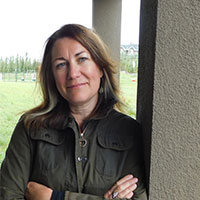
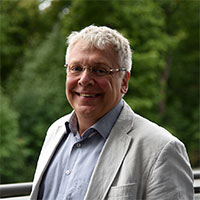
Werner L Kutsch
Dr. Werner Kutsch is Director General of ICOS since March 2014. He is biologist, plant ecologist and ecosystem scientist by education and has worked on ecosystem carbon cycling for 25 years in Europe and Africa. The focus of his work has been for a long time in the comparison of ecosystems after land use change and integrating complex landscapes. He has worked at the Ecosystem Research Centre of University of Kiel, at CSIR in Pretoria, at the Max-Planck-Institute for Biogeochemistry in Jena and at Thünen, the Federal Research Institute for Rural Areas, Forestry and Fisheries in Braunschweig. He is responsible for the external representation of ICOS ERIC and currently leading the development of its future strategy. ICOS aims to be part of European and global integration initiatives that that support the usage of in-situ observations for improving the national inventories on greenhouse gases.
Henry W Loescher
TBC
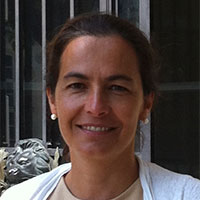
Maria Faury
Maria FAURY is director of international affairs and large research infrastructures, at the Fundamental Research Division of CEA (French Atomic and Alternative Energy Commission). She is presently French representative in various boards such as ESRF and Soleil (European and national synchrotron), ILL (European neutron research reactor), F4E (Fusion for Energy), GENCI (national infrastructure for HPC). Since July 2018, she is Chairperson of the XFEL Council.
She was previously deputy director of the Physical Science division and director of programs and evaluation (2014-2015). She was member of the board of French public research institutes such as IRSN (nuclear safety and radioprotection), ANDRA (nuclear waste management), IFPEN (fossil and renewable energies Institute). She was also French representative in various European bodies.
William McDowell
William H. McDowell is Professor of Environmental Science in the Department of Natural Resources and the Environment at the University of New Hampshire in Durham, NH, USA. He has a background in ecosystem ecology and has worked on land-water interactions and controls on stream chemistry and watershed solute export for the last 35 years. Dr. McDowell is former Chairman of the Department of Natural Resources, serves as Director of the NH Water Resources Research Center, and currently holds a UNH Presidential Chair. He is co-chair of the US International LTER Committee. McDowell teaches courses on watershed management and ecosystem ecology. He conducts long-term research in New Hampshire, Czech, and Puerto Rican watersheds, with a focus on understanding the interactions between nutrients and dissolved organic matter and linking critical zone structure to biotic processes.
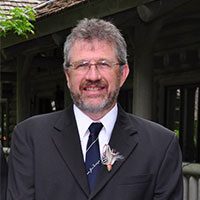
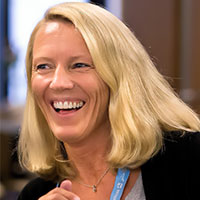
Lise Sagdahl
Lise T. Sagdahl has been in charge of the development and implementation of “The Norwegian Research Infrastructure Resource Model”. The model provides a method to declare costs for use of research infrastructure based on the full costs generated by the activity. The model has been developed to ensure that state of the art laboratories and scientific equipment can be made available for research and education, and so that the price for use of a research infrastructure resource can be calculated using a transparent and relatively simple method. Lise T. Sagdahl has a PhD in Physics. Since 2002, Lise T. Sagdahl has had the role of senior adviser for the leadership at the Norwegian University of Science and Technology in Trondheim, Norway. Lise T. Sagdahl was a member of the Global Science Forum Expert Group on Research Infrastructure sustainability.
Douglas Wallace
Doug Wallace is a Professor at the Department of Oceanography at Dalhousie University, Canada where he holds the Canada Excellence Research Chair in Ocean Science and Technology. He gained his BSc at the University of East Anglia and his PhD in Chemical Oceanography from Dalhousie University and worked previously at Brookhaven National Laboratory in the USA and the Helmholtz Centre for Ocean Research Kiel (GEOMAR) in Germany. His research topics are chemical oceanography, atmospheric-ocean interaction and the oceanic cycling of carbon and nitrogen. He is currently Scientific Director of Canada’s Marine Environmental Observation, Prediction and Response Network: a national Network of Centres of Excellence which supports research on marine environmental risk across Canada. He also leads a trans-national research module of the Ocean Frontier Institute which is focussed on “auditing” the carbon sink in the Northwest Atlantic Ocean.
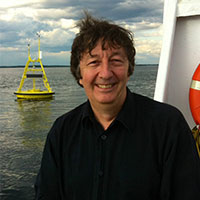
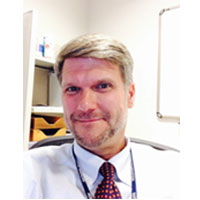
Matthew Hawkins
As a member of the U.S. government’s Senior Executive Service, Mr. Hawkins heads the National Science Foundation’s Large Facilities Office (LFO). This office is responsible for providing agency-wide assurance for the design, construction and transition to operations for new major multi-user research facilities. These facilities include telescopes, particle detectors, mobile research platforms and distributed observatories. From 2008 to 2014, Mr. Hawkins was a Program Officer for Ship Acquisition and Upgrade in the Division of Ocean Sciences at NSF. Mr. Hawkins has a B.S. in Civil Engineering from the University of Maine, and a Master’s degree in International Policy and Practice from George Washington University. In his spare time, he enjoys boating and flying.
Sharon Cosgrove
Sharon Cosgrove is Executive Director of Strategy, Planning and Communications at the Science and Technology Facilities Council (STFC) one of Europe’s largest multidisciplinary science and technology organisations. At STFC, she holds the responsibility for the development and implementation of STFC’s corporate and science strategies to deliver their long term programmes and impact agenda. She represents STFC on international policy relations and is the UK Government’s Senior Official on the group advising the G7 Science Ministers on Research Infrastructures. She was also member of the Programme Committee for the international conference of the European Open Science Forum in Toulouse this July.
Before joining STFC in 2009 she worked in science policy for the Department of the Environment and then held a number of government strategy positions. Sharon holds a PhD in structural geology and an executive MBA.
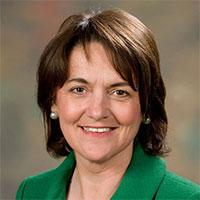
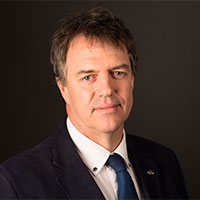
Nigel Smith
Nigel Smith joined SNOLAB as Executive Director during July 2009. He currently holds a full Professorship at Laurentian University, adjunct Professor status at Queen's University, and a visiting Professorial chair at Imperial College, London. He received his Bachelor of Science in physics from Leeds University in the U.K. in 1985 and his Ph.D. in astrophysics from Leeds in 1991. He has served as a lecturer at Leeds University, a research associate at Imperial College London, group leader (dark matter) and deputy division head at the STFC Rutherford Appleton Laboratory, before relocating to Canada to oversee the SNOLAB deep underground facility. He supports the scientific community by serving on several peer review, agency science strategy and institute board and oversight committees.
Mikhail Popov
TBC
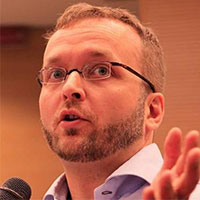
Ari Asmi
Ari is the coordinator of European Commission funded RISCAPE project, mapping the global landscape of major research infrastructures and many of their aspects in respect to European counterparts. He works as a senior research coordinator in the Institute for atmospheric and Earth system research in University of Helsinki, and as a Project director in the ICOS ERIC infrastructure. Ari is active in many open science and European Open Science Cloud related initiatives, is the project director of ENVRI PLUS consortium for joint development of European major environmental research infrastructures and a part of the COOP+ consortium for international collaboration of environmental research infrastructures. Ari has a PhD in atmospheric physics, and is currently enrolled in an executive management master programme on research infrastructure management.
Research infrastructures are complex organizations that rely on multiple competences in order to offer to the scientific community and other stakeholders a range of services: unique science facilities, open and assisted access, support to innovation, advanced training, and an interface between science and society. Ensuring the excellence and sustainability of research infrastructures requires highly skilled staff members who can operate in multicultural and multi-disciplinary work contexts. The required skills concern technical aspects, governance systems and the ability to design and operate cutting-edge data technologies, manage large-scale research data collections and interface with a broad range of e-infrastructures. This session will focus on identifying existing and future gaps in human resource capabilities and the means to address these gaps.
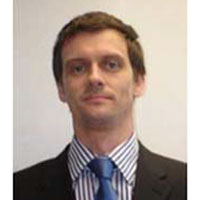
Michael Ryan
Dr. Michael Ryan is Head of International at Science Foundation Ireland. Michael has held other positions at the Foundation, including Manager of EU Affairs in coordinating SFI’s approach to European activities & EU Framework Programming; and as Scientific Programme Manager. Michael received a PhD from University College Dublin on the design and characterisation of a biosensor to selectively detect brain glutamate. Dr Ryan’s technical background covers electrochemistry, biosensors, battery systems and printed electronics. Michael is the National Delegate to the European Strategy Forum for Research Infrastructures (ESFRI); the Irish representative on the EU Horizon 2020 Research Infrastructures Programme Committee; the National Delegate to the ERIC committee (European Research Infrastructure Consortium). He is also a member of the Irish Government High Level Group for Horizon 2020.
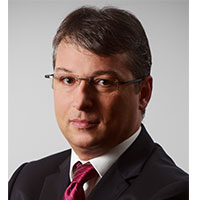
Catalin Miron
Dr. Catalin MIRON is currently the Deputy Director of LIDYL, a research unit of the French Atomic Energy Commission (CEA) studying ultrafast phenomena induced by radiation-matter interaction, mainly using ultrashort and ultrahigh intensity laser pulses, but also synchrotron radiation and free electron lasers. Formerly, he was the Deputy Director General of the Extreme Light Infrastructure Delivery Consortium (ELI-DC AISBL), ELI being the first international research infrastructure in the laser science and applications field. He is an expert in accelerator-based atomic and molecular science and instrumentation, and was leading a research group at Synchrotron SOLEIL in France for more than ten years, being involved in international collaborations with other large research infrastructures worldwide: in Europe (Max-Lab, Sweden), in the USA (LCLS at Stanford Linear Accelerator) and in Japan (SPring-8 and SACLA). He holds a Ph.D. in Physics and a D.Sc. degree (HDR) in Chemistry, both from Paris-Sud XI University.
Jennifer Edmond
Dr Jennifer Edmond, is Associate Professor of Trinity College Dublin and the co-director of the Trinity Center for Digital Humanities. She holds a PhD in Germanic Languages and Literatures from Yale University, and applies her training as a scholar of language, narrative and culture to the study and promotion of advanced methods in and infrastructures for the arts and humanities. In this vein, Jennifer serves as President of the Board of Directors of the pan-European research infrastructure for the arts and humanities, DARIAH-EU. Additionally she represents this body on the Open Science Policy Platform (OSPP), which supports the European Commission in developing and promoting Open Science policies. Jennifer has played a leadership role in numerous strategic developments at national and institutional level, and has lent her expertise in the development of infrastructure projects and funding programmes to a wide variety of initiatives and agencies.
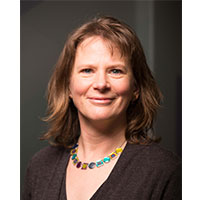
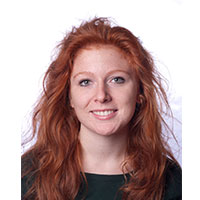
Veronica Cesco
Veronica Cesco works as Policy Officer for “Open Science and ERA policy” at the European Commission Directorate-General for Research and Innovation. As part of the European Research Area policy, Veronica covers the development of the European open labour market for researchers. She is in charge of the expansion of RESAVER, the first pan-European pension fund for the research community. She previously worked in advocacy and campaigning in the NGO sector.
Veronica holds a master’s degree in International Public Policy from University College London and a master’s degree in European Studies from Université Libre de Bruxelles.
Christoph Schwanda
Dr. Christoph Schwanda is the deputy directory of the Institute of High Energy Physics of the Austrian Academy of Sciences and associate professor at the Vienna University of Technology. After undergraduate studies in Vienna, he obtained his Ph.D. at the DELPHI experiment at CERN, the European Organization for Nuclear Research in Geneva, Switzerland, followed by postdoctoral work in Japan. His research interest are the Belle and Belle II experiments at the Japanese laboratory for particle physics KEK in Tsukuba, which study the tiny difference between matter and anti-matter. He played a leadership role in the physics analysis of the Belle data and is currently leading the construction of a key instrument of the Belle II detector, the silicon vertex detector SVD.
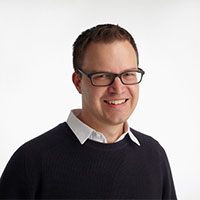
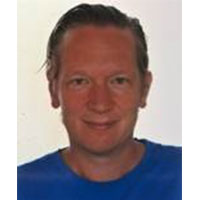
Stijn Delauré
Stijn Delauré is policy officer at the European Commission, Directorate-General for Education, Youth, Sport and Culture, unit C2 Marie Skłodowska-Curie Actions (MSCA). He is responsible for the Individual Fellowships action for postdoctoral researcher training and mobility in ‘Horizon 2020’. Stijn currently coordinates the MSCA developments in the post-2020 Framework Programme ‘Horizon Europe’. Stijn obtained his PhD in Biotechnology in 2003 at Ghent University on a DNA repair and recombination project in collaboration with Bayer Bioscience, after which he worked as researcher at Bayer Bioscience and at the Centre for Microbial and Plant Genetics in Leuven. Before joining the European Commission in 2017, Stijn worked as European research policy officer for KU Leuven and established and chaired the European research project managers policy and advocacy group of the League of European Research Universities (LERU).
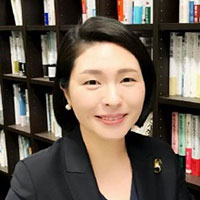
Hiromi Yokoyama
Hiromi Yokoyama is a professor at the University of Tokyo ( Kavli institute for the physics and mathematics of the universe: Kavli IPMU / Graduate School of Interdisciplinary Information Studies) with scientific communication and public policy. She studied High Energy Physics, elementary particle experiments until graduate. She participate in discussions on the big science facilities especially in the Ministry of Japan (MEXT) councils. In the past ten years, she has been strongly involved in the creation of the Japanese version ESFRI, academic large-scale roadmap and has been discussing the International Linear Collider (ILC) for five years.
Silke Schumacher
Silke Schumacher has a degree in biology and in public administration and is the Director of International Relations at EMBL-Heidelberg. She is responsible for all government and EU relations at EMBL as well as relations with EIROforum, and oversees the European Learning Laboratory for the Life Sciences. Dr. Schumacher studied Biology at the University Hamburg and holds a PhD in Structural Biology from the Université Paris XI. Following her graduation in 1997, she was a Postdoctoral fellow at the National Institutes of Health in Bethesda, USA, until 1998. In 2003, Dr. Schumacher moved to EMBL, where she was initially responsible for scientific cooperation and communications. Two years later she became Head of International Relations and Communications at EMBL, since 2010, the Director of International Relations.
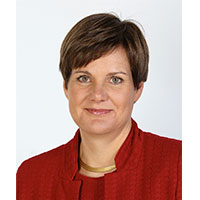
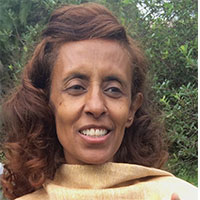
Rahel Fidel
Rahel Fidel was born and raised in Ethiopia before moving to North America. While in Canada and the US she was able to advance her education to master's level in the Information Technology field. Since moving back to her native Ethiopia the last couple of years, she has been leading, directing and overseeing the Information Communications Technology function, at the nation’s Ministry of Science and Technology, ensuring continuous operation and cost-efficiency of the Ministry’s systems, network, database architecture and data security, in order to achieve consistency and reliability of hardware, software, non-system tools, data archiving and offsite disaster recovery management. Prior to her appointment with Ministry of Science and Technology, Rahel worked at Stanford University for over 16 years in various areas within the IT department.
Irene Haslinger
Irene Haslinger has a background in theoretical linguistics and librarianship. Before joining Delft University of Technology as Executive Secretary to the Faculty of Electrical Engineering, Mathematics & Computer Science, she held various positions at the National Library of The Netherlands. The Faculty of Electrical Engineering, Mathematics & Computer Science was the first faculty in Delft to appoint dedicated data stewards to support researchers with their data management needs. As Executive Secretary, Irene is involved in the HR processes at the faculty (such as hiring and progress review). She also contributed to TU Delft’s strategic framework 2018-2024, which has broad implications for open science.
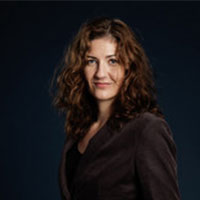
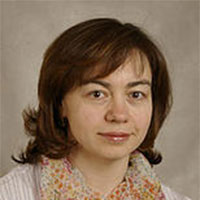
Irina Kuklina
Irina Kuklina graduated from the faculty of psychology of the Leningrad State University, followed by experimental work and lecturing at Kazan State University and coordination of international socio-economic projects in Russian regions, including European part of Russia, Siberia, Far East, Baikal region and Yakutia. Since 2006 she is one of the founders and Executive Director of the International Centre for Innovation in Science, Technology and Education (ICISTE). ICISTE was established in response to raising demand for specialists in the sphere of international STI policy cooperation and leads on the development and implementation of new types of international STI programs with Russia. Areas of interest include science diplomacy and international STI policy cooperation.
Although research infrastructures are essential for the advancement of scientific knowledge, not all countries and communities can equally contribute to their development and benefit from their use. Differences in size, financial capacity, human resources and educational levels, amongst other factors, limit engagement and participation. In order to achieve their goals of promoting scientific excellence and maximising scientific return on investment research infrastructures should be open to all capable researchers, and countries should be able to contribute human and financial resources at levels that are appropriate and feasible. This session will tackle a series of questions related to overcoming inequalities in the development and use of research infrastructures and identifying practical measures that can foster diversity in their use.
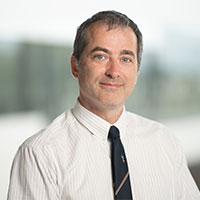
Frederic Le Pimpec
F. Le Pimpec obtained his PhD from Université Pierre et Marie Curie in Paris in 2000 while working at CERN, in Geneva, on the LHC vacuum system. At SLAC, in California, he worked on the Next Linear Collider project. As a staff scientist at PSI, near Zurich, he joined the effort in designing, constructing and operating the various systems needed to complete the SwissFEL accelerator, a fourth-generation light source. He then leaped from Science to Science management and assists, since end of 2012, the Management Board of the European XFEL GmbH in various management tasks. He is also responsible for the European XFEL international affairs and is a dynamic member in the activities led by the EIROforum international affair and coordination groups.
Caterina Biscari
Dr. Caterina Biscari, born in Italy, 1957, is an experimental physicist, since 2012 Director of the Alba Synchrotron, the 3rd Generation Synchrotron Radiation Facility in Barcelona, Spain. Vice chair of LEAPS, the recently created League of European Accelerator-based Photon Sources. Previously has worked on design, construction and operation of accelerators, participating with key contributions to different projects, at CERN and at the Laboratori Nazionali di Frascati of INFN. EPS Fellow and member of several international advisory committees, among which CERN Scientific Policy Committee.
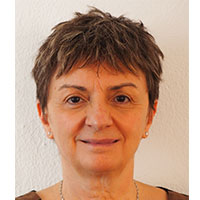
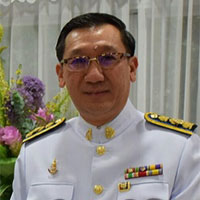
Sarawut Sujitorn
Professor Sarawut Sujitjorn received his BSc(EE) from the Royal Thai Air Force Academy (RTAFA) in 1984, and PhD(EEE) from the University of Birmingham, UK, in 1987. In 1993 he was invited to help setup Suranaree University of Technology (SUT), the first autonomous university in Thailand. During 19 years with the university, he was the founding Head of Electrical Engineering School, Deputy Director of CSTE, VP for Academic Affairs, and Director of R&D Institute. In 2012, he was recruited to be CEO of Synchrotron Light Research Institute (Public Organisation), where he has developed several teams including control and automation, industrial accelerator, marketing, and talent management. He devoted his knowledge and skills on control to solve a long-term problem of electron-beam stabilisation, and develop photon- and electron-beam observers. Professor Sujitjorn is recipients of Plague of Honour-SUT, Alumni Awards-RTAFA, Alumni Awards-Armed Forces Academies Preparatory School, and Outstanding CEO for Research and Development-Foundation for the Thai Society.
Lars Börjesson
Professor Lars Börjesson is the Chairman of the Council of the European Spallation Source (ESS) ERIC. ESS is currently being built in Lund and will become the world’s most powerful neutron source. Lars Börjesson was one of the founders of the European Spallation Source - Scandinavia in 2000 and became its first chair. Lars Börjesson was awarded the Baltic Sea award in 2012 for initiating the European Spallation Source project in the Baltic Sea Region.
Lars Börjesson was Secretary General to the Swedish Research Council, Council for Research Infrastructures 2004 – 2010. He was also vice-Chair of the European Strategy for Research Infrastructures 2010 - 2012. Lars Börjesson is also vice-Chair of the Board of Directors of the global radio-telescope project SKA to be built in Australia and South Africa with headquarters in the UK. He was vice-chair of the Council for the XFEL free electron laser facility in Hamburg 2014-2018.

Research infrastructures create societal value in a wide variety of ways depending on the nature of the infrastructure. They are, however, at the first step of the research enterprise value chain, and as such they are distant from the actual application of new scientific knowledge. This poses significant challenges in assessing, enhancing and communicating the societal value of research infrastructures. The purpose of this session is to explore new ways of tackling these challenges by examining new approaches to measuring value.
The issue of societal trust – how to build it and how to maintain it – is woven into this theme.
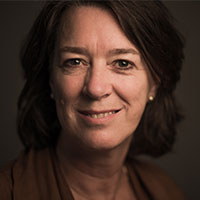
Franciska de Jong
Franciska de Jong is the executive director of CLARIN ERIC, the research infrastructure for language resources that provides scholars in the humanities and social sciences with seamless access to digital language data and processing tools. She is a professor of e-research at the department of Humanities at Utrecht University and has background in language and speech technology. For a few decades she has been involved in projects aiming at advancing the access to digital libraries, ranging from news data, folk tales, oral history collections and scientific information.
Philippe Froissard
Philippe FROISSARD graduated in nuclear engineering in Grenoble (France) in 1988 and completed his PhD in nuclear physics in 1992. He worked on nuclear fusion research and particularly on radio frequency heating first at the JET Joint Undertaking in Oxfordshire (UK) and then at the Commissariat à l'Energie Atomique (CEA) in Cadarache until 1999. He joined the Directorate-General for Research in 2000 and has held since several positions in the Human Potential and International Cooperation Programmes. Since 2012, he is the Deputy Head of Research Infrastructures Unit, which supports the development, implementation and integration of Research Infrastructures of pan-European interest.
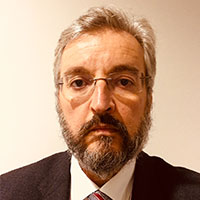
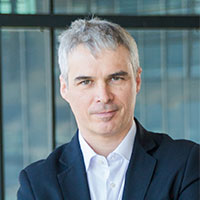
Vincent Mangematin
Vincent Mangematin is Dean and Chief Academic Officer at Kedge Business School. He is Professor of Strategic Management and Management of Innovation. His research stands at the intersection of Strategic Management and Innovation. He focuses on emergent phenomenon and on the transformative influence of digital technologies in the society. In the recent years, he has been focusing on business models as an approach to renew strategy. He is recognised as a stimulating scholar on topics related to innovation and emergence. He is associate editor at Technology Forecasting and Social Change. He is serving in the Editorial board of Organization Studies, M@n@gement and Research Policy. He published more than 100 papers in leading journals, 2 edited books on trust (in French), and about 20 book chapters and articles in professional journals.
Laura Hillier
Laura Hillier is the Director of Performance, Analytics and Evaluation at the Canada Foundation for Innovation (CFI). She leads a team responsible for monitoring corporate performance and assessing the outcomes and impacts of the investments in research infrastructure made by the CFI. Laura holds a BSc in biology, an MSc in epidemiology and the Canadian Evaluation Society’s Credentialed Evaluator (CE) designation. She has worked in research evaluation at three different funding organizations over the past 10+ years. Laura brings to her work in research performance and impact assessment past experience working across the different areas of health research – basic biomedical research, clinical research, health services research as well as population health research.
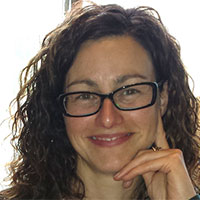
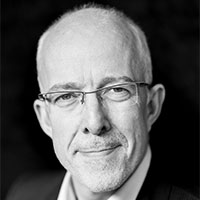
Alasdair Reid
Alasdair Reid is the Policy Director of EFIS Centre. He has over 25 years’ experience of advising governments in developing, implementing and evaluating research. He has advised the European Commission, the OECD, the World Bank, the Nordic Council of Ministers, national and regional governments and agencies throughout the European Union and in third countries. Alasdair led the development, during the 2000s, of the main EU research and innovation policy benchmarking and analysis online platforms (e.g. Trend Chart on Innovation and ERAWATCH). He is a currently working on the 2018-2019 European Innovation Scoreboard. Alasdair has been responsible for a number of major framework contracts and has been project manager/director for over 40 European level studies. He is currently coordinator of three major Horizon 2020 projects on online tools and indicators for smart specialisation, e-infrastructure services for the EOSC and socio-economic impact assessment of research infrastructures.
Anne Gauthier
Professor Anne H. Gauthier is Director of the Generations & Gender Programme (GGP) Research Infrastructure, researcher at the Netherlands Interdisciplinary Demographic Institute and Professor of Comparative Family Studies at the University of Groningen. Her expertise lies in demographically-relevant, quantitative comparative research on family policies including childbearing, parental investments in children and transitions to adulthood. In 2017 Professor Gauthier was awarded the IUSSP-Mattei Dogan Foundation Award for Comparative Research in Demography by the International Union for the Scientific Study of Population. This award highlights the importance that her work has accorded to international comparative research and internationally comparable data in the social sciences. Prof. Gauthier has a PhD from Oxford University and has held academic positions in Canada, the USA, and the UK prior to moving to the Netherlands.
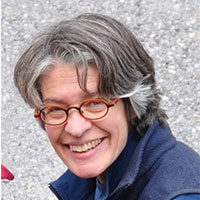
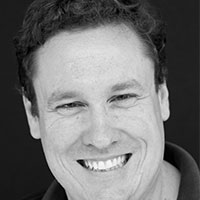
Tom Keenan
Tom Keenan has a PhD in Business from the Queensland University of Technology. He has over 25 years’ experience as both a practitioner and researcher within the field of business management. He has been engaged as an executive leader within, and a consultant to, Australian for-profit and not-for-profit SMEs, as well as government agencies and private corporations. Tom joined the Planning, Performance and Evaluation (PP&E) team of Australia’s Commonwealth Scientific and Industrial Research Organisation (CSIRO) as its Senior Advisor in 2016. He leads the Impact team within the broader PP&E team, which is responsible for the planning for, and monitoring and evaluation of, impact across CSIRO, both nationally and internationally. He has a great depth of understanding of, and extensive experience in, all aspects of planning, performance, and evaluation.
Myeun Kwon
He has been working more than 30 years in the areas of accelerator and plasma physics. He is interested in wave-particle interaction, particle acceleration by radio-frequency wave, heating and current-drive, and electron beam technology. He also worked with policy developers and for decision-makers for research infrastructures investment. He served as the President of National Fusion Research Institute (NFRI) and as a Member of editors’ board of couple of professional journals. He is currently a Member of ITER Council, and Fellow of few Korean professional organizations.
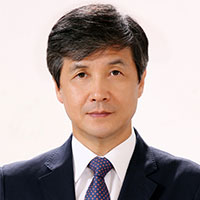
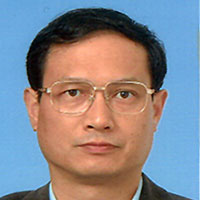
Xiaoming Jiang
Obtained Ph. D. in the Center for Fundamental Physics, University of Science and Technology of China in 1988. Then entered as Post-doctor into the Beijing Synchrotron Radiation Laboratory, Institute of High Energy Physics(IHEP), Chinese Academy of Sciences. Became Professor at IHEP in 1995, and assigned as Deputy Director of IHEP in 2005. Transferred as the Director, Beijing Advanced Sciences and Innovation Center, in 2013 Research fields: Solid State Physics, Synchrotron Radiation Application, and Imaging Technique R&D.
Andrew Smith
Andy joined ELIXIR in 2011 during ELIXIR’s Preparatory Phase to help ensure its transition into operations. As Head of External Relations, Andy manages ELIXIR’s engagement with Member States, funders and policy-makers and the EU institutions. He has responsibility for ELIXIR’s communication activities, industry engagement, international strategy, and collaborations with other infrastructures. Andy also overseas ELIXIR’s governance committees including the ELIXIR Board, SAB and Industry Advisory Committee. Andy’s background is in EU research programmes and policies. Previously he worked in Brussels for the UK Research Office (UKRO), covering various science policy fields, including FP7 National Contact Point helpdesks and supporting UK delegations to FP7 Programme Committees. Andy has previously held roles in regional government, focussing on EU Structural Funds, and on education programmes in Slovenia and the Czech Republic.
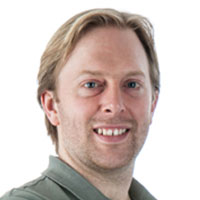
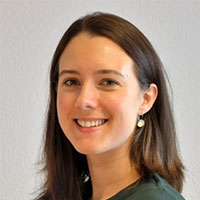
Amy Bilton
Amy joined the CERN Knowledge Transfer Group in October 2016 as a Knowledge Transfer Officer, with main responsibility for accelerator and related technologies. Prior to joining CERN she held roles in Business Development and Knowledge Transfer at City, University of London (UK) - facilitating the establishment and management of business, professional, and civic relationships that enabled City’s research and teaching activities to have impact outside of academia. This included the disciplines of: data science & visualisation, machine learning, user-experience (UX), networks & cyber security, photonics & sensors, biomedical engineering, mechanical & aeronautical engineering, and civil & structural engineering. Amy holds a MPhil in Agricultural Sciences from Newcastle University (UK), a NVQ Level 4 in Management, and a Bachelor’s degree in Biological Sciences from the University of Oxford (UK).
Pierre Normand
As Vice-President of External Relations and Communications, Pierre Normand is responsible for developing and maintaining relationships with stakeholders in all sectors, as well as providing management and direction to the CFI’s communications and government relations activities. He provides the vision and leadership necessary to project a vibrant corporate image and uphold the organization’s strategic positioning in the public environment. For most of his career, Mr. Normand has worked in management, communications and external relations for university research, innovation and post-secondary education organizations. Prior to joining the CFI, Mr. Normand held the position of Director of Communications at the Canadian Federation for the Humanities and Social Sciences where he was responsible for providing advice on governance and organizational issues, policy, and government relations.
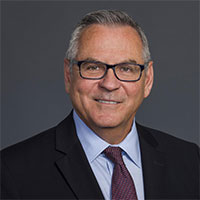
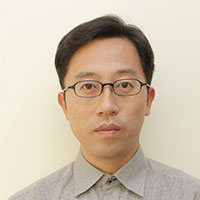
Jeon Chan-Young
Chanyoung Jun holds a Ph.D in Mathematics from the University of Illinois at Urbana–Champaign. Since 2014, he is a senior researcher for National Research Facilities and Equipment Center, South Korea (NFEC). In order to enable researchers to make better use of research facilities and equipment, NFEC has created a search engine for research facilities and equipment available for sharing, named Zone for Equipment Utilization Service(ZEUS). There he has the responsibility for operating and upgrading ZEUS system. Before he took charge of ZEUS system, he had studied to measure the similarity of research equipments in order to build a screen process for the budget decision of research equipment.
Sara Iverson
Dr. Sara Iverson is a Professor of Biology and the Scientific Director of the global Ocean Tracking Network (OTN), an international infrastructure, research, training, data management, and technology development platform, headquartered at Dalhousie University, Halifax, Nova Scotia. OTN is one of Canada’s National Research Facilities funded primarily by the Canada Foundation for Innovation (CFI), as well as through both national and international partnerships and contributions. OTN uses sensor technologies, robotic underwater vehicles and “animal oceanographers” to provide state-of-the-art capacities in ocean observation and houses an internationally-recognized data warehouse that provides open-source tools for data curation, visualization, and analysis. Sara received her PhD jointly from the Smithsonian Institution and the University of Maryland, USA, and also leads a research program in marine animal physiological ecology.
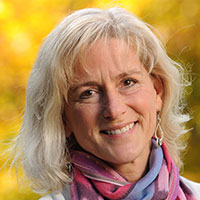
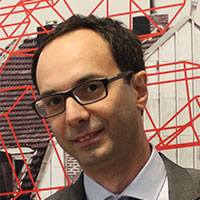
Giuseppe Cimò
Dr. Giuseppe Cimò is a professional astronomer at ASTRON and JIVE. He has a strong observational background in radio astronomy. He is involved in space missions of the European Space Agency by applying VLBI to space science. Currently, he is the Project Scientist of the "PRIDE" experiment for the ESA's flagship mission JUICE, and the Project Manager of the Horizon2020 project "JUMPING JIVE". He is also the Project Scientist of the Horizon2020 collaboration "ASTERICS", which fosters synergies among existing research infrastructures and scientific communities, with the ambition of seeing them interoperate as an integrated multi-messenger facility. Part of ASTERICS mission is to engage with the general public by developing citizen science experiments that address genuine and pressing science questions while involving the public directly in knowledge discovery.
In today’s digital world, research is increasingly data-driven and research infrastructures are becoming large-scale data factories, producing, collecting, managing or processing ever larger volumes of increasingly complex data. While significant advances are being made in making research data openly available to researchers, concerns around data quality and reliability remain. For the overall integrity of the research enterprise, these concerns are of vital importance. How can we ensure that data, including experimental facilities, data repositories, cyber infrastructure and associated data services comply with the requirements of quality and openness? This session will focus on the central questions of how best to ensure data quality and reliability, how to design and implement reliable data management systems and the impact on both present and future research infrastructures and data producers and users.
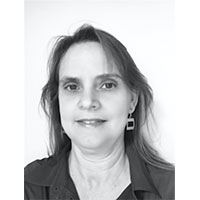
Michelle Barker
Dr Michelle Barker leads the development of strategic national e-Infrastructure programs for the research sector in the Australian Research Data Commons. Michelle’s academic career focused on social and organisational change, providing particular expertise in building collaborative partnerships to achieve system-wide transformation in the research sector. Michelle is an international leader of the science gateways (or Virtual Research Environments) community, and co-founded the International Coalition on Science Gateways. In her current role as one of the Directors of the Australian Research Data Commons, Michelle leads software infrastructure investment programs. Michelle is Chair of the OECD GSF Expert Group on Digital Skills for Research, and also a member of the OECD GSF Expert Group on Socio-Economic Impact of Research Infrastructures.
Carthage Smith
Carthage Smith joined the OECD as head of the Global Science Forum (GSF) Secretariat in June 2014. He is responsible for working with national members to define the overall strategy and priorities for the Forum. This includes policy work on research infrastructures, Open Science, research funding mechanisms and science advisory processes.
Carthage was originally trained as a biochemist, with a PhD in neuroscience (Newcastle University, UK). Prior to joining the GSF secretariat, he was Deputy Executive Director of the International Council for Science (ICSU, Paris) for twelve years. In this position he led the strategic development of a number of major global science initiatives. Before moving to France, he spent six years at the UK Medical Research Council, where he was Head of International Cooperation.
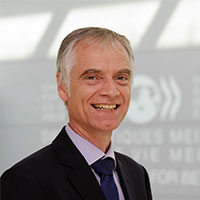
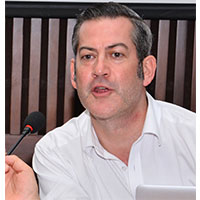
Simon Hodson
Simon Hodson has been Executive Director of CODATA since August 2013. Simon is an expert on data policy issues and research data management. He has contributed to influential reports on Current Best Practice for Research Data Management Policies and to the Science International Accord on Open Data in a Big Data World. Additionally, Simon leads or participants in numerous projects, Working Groups and Steering Groups. He is Project Director, African Open Science Platform Project; Chair, European Commission’s Expert Group on FAIR Data and Co-chair, GEO Data Sharing Working Group. Simon is also is a member of the Board of Directors of the Dryad Data Repository, a not-for-profit initiative.
Darren Bell
Darren Bell has worked in a variety of IT roles in both the private and public sectors since the early nineties, firstly as a network engineer, then as an Infrastructure Manager, then moving into the development and architecture arena. He has been at the UK Data Archive at the University of Essex since 2012, overseeing the transformation of the repository from a traditional social sciences file and SQL-based infrastructure into a domain-agnostic data platform, underpinned by Hadoop and large-scale graph data models. He is currently lead architect for the UK Smart Meter Research Portal, a £6 million investment by EPSRC to deliver a world-class smart meter data repository for academic researchers by the end of 2019. His professional interests include leveraging graph and semantic web technologies to deliver cross-disciplinary analytics at scale.
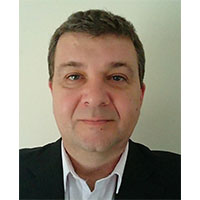
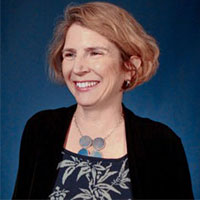
Maggie Levenstein
Margaret C. Levenstein is Director of ICPSR, the Inter-university Consortium for Political and Social Research, Research Professor at the Institute for Social Research and the School of Information, and Adjunct Professor of Business Economics and Public Policy at the Stephen M. Ross School of Business. She has taught economics at the University of Michigan since 1990. She serves as Co-executive Director of the Michigan Federal Statistical Research Data Center and co-PI of the Michigan Center for the Demography of Aging, where she is responsible for access to restricted data resources. She received a Ph.D. in Economics from Yale University and a B.A. from Barnard College, Columbia University.
Dale Peters
Dr Dale Peters is Director of eResearch at the University of Cape Town, providing leadership in provisioning networked infrastructure tools and services to enhance and support innovative practice in data-intensive research. Dr Peters served as convenor of the Work Group for the Data Intensive Research Initiatives of South Africa (DIRISA), leading to the formalisation of the National Integrated Cyber-Infrastructure System (NICIS) in 2013. She chaired a work group on data sharing in a study conducted by the Belmont Forum on e-Infrastructures and Data Management; and served on the international expert group of the OECD study, reporting on International Coordination of Data in Infrastructures for Open Science.
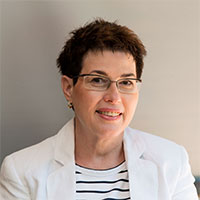
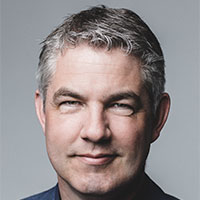
Erik Steinfelder
Erik Steinfelder earned his Bachelor of Science degree in Analytical Chemistry from the Saxion University of Applied Sciences in Deventer, Netherlands, and completed Foundations of Management at Nyenrode Business University in Breukelen, Netherlands. In 2008, he joined Thermo Fisher Scientific, a multinational biotechnology product development company based in the US. In his position as first Biobank Commercial Leader EMEA, he went on to head the complete biobank portfolio and range of activities and, most recently, became Corporate Accounts Executive. Additionally, between 2014 and 2017, he was also President-elect, President and past President of ESBB, the European, Middle Eastern and African Society for Biopreservation and Biobanking.
Francoise Genova
Francoise Genova has been the director of the Strasbourg astronomical data centre CDS, which provides value-added services to the international astronomical community, from 1995 to 2015, and one of the founding parents of the astronomical Virtual Observatory endeavour. The Virtual Observatory is an ecosystem of standards and tools enabling seamless access to the wealth of on-line astronomical resources. She was a member of the High Level Expert Group on Scientific Data set up by the European Commission in 2010, and is currently a member of the European Commission Expert Group on Turning FAIR data to reality (2017-2018). She has been an active member of the RDA since its inception, in particular as member of the RDA Technical Advisory Board (co-chair since October 2015).
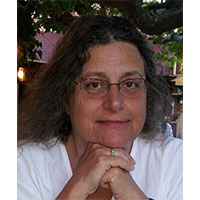
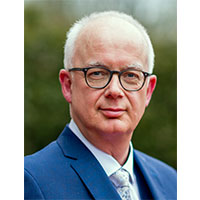
Ron Dekker
Ron Dekker is the director of CESSDA ERIC, the Consortium of Social Science Data Archives, with its main office in Bergen, Norway. CESSDA is a European Infrastructure with 17 members (countries) and combines the work and expertise of these countries’ social science data service providers, see www.cessda.eu. Ron studied econometrics and worked for ten years in labour market research at Dutch universities. He was at the national research council for almost twenty years – running a data agency, program committees and in general management (institutes, infrastructure and open science). This included secondment to the Dutch government for project leadership on Open Science of the Dutch EU Presidency in 2016 and as national expert at the European Commission in Brussels in 2017.
Devika Madalli
Dr.Devika Madalli is a Professor of the Documentation Research and Training Centre, Indian Statistical Institute, India and Adjunct faculty, DISI, University of Trento, Italy. Prof.Madalli is founding member and served as the co-chair of the Agriculture Data Interest Group [IGAD], Research Data Alliance [RDA][2013-2016]. Dr.Madalli served as a member of a high level evaluation committee of UNFAO’s statistical database and information services, FAOSTAT and on the high level review committee of CGAIR’s Open Data and Open Access policy implementation. Prof.Devika Madalli is a member and consultant to several international organizations and initiatives including UNFAO and UNESCO.
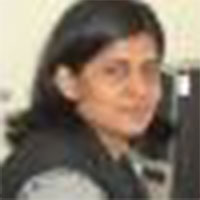
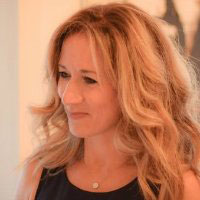
Silvana Muscella
Silvana Muscella CEO & founder of Trust-IT Services, an SME that communicates ICT to international markets & CEO & cofounder of the software house and web application services COMMpla. Silvana tackles high level strategy building, business acquisition, coordination & strategic marketing and communication developments namely in the field of ICT in standards, energy efficiency, next generation internet, cybersecurity & cloud computing tools & services. Chair of High-Level Expert Group 2nd HLEG EOSC European Open Science Cloud [2017-2018]. Individual Member of The Green Grid, Member of ECSO, the IEEE InterCloud Computing Initiative, ACM Professional Member. Served as an at-large Director for the OGF, Founder of the Cloudscape Workshop series since 2010 now self-sustainable in Brazil.
Gabriele von Voigt
Prof. Dr. Gabriele von Voigt is a full Professor at Leibniz University Hanover (LUH) where she leads the institute Computational Health Informatics. Her teaching and research is dedicated to Medical Informatics, Parallel Computing and e-Infrastructures. She started working in the field of medical informatics during her studies of computer science at Technical University Berlin. Her Ph.D. was on the design of user interfaces for medical workstations and her Habilitation was dedicated to the application of virtual reality within medicine. She worked for more than 8 years as the head of information services and was the project leader for the installation of SAP in a University Hospital. She also ran the computing centre of LUH for 14 years. Currently she is the Chair of the European e-Infrastructure Reflection Group (e-IRG) which gives advice to the developments and innovations of e-infrastructures.
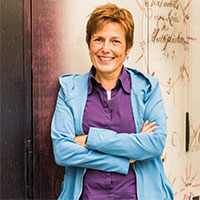
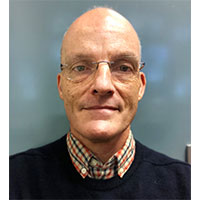
Andrew Treloar
Dr Andrew Treloar is the Director Projects, Engagements and International for the Australian Research Data Commons (https://ardc.edu.au/). He is currently co-chair of the Research Data Alliance (http://rd-alliance.org/) Technical Advisory Board. His research interests include data management and scholarly communication. He never seems to be able to make enough time for practising his ‘cello or reading, but does try to prioritise talking to his chickens and working in his vegetable garden and orchard. Further details at http://andrew.treloar.net/ or follow him on Twitter as @atreloar.
Mohammad Nasser-Eddine
Mohamad Nasser-Eddine joined the Canada Foundation for Innovation as Director, Programs in October 2015. He supports the CFI in achieving its mandate and strategic objectives by designing and managing funding programs and ensuring effective relationships with recipient institutions across the country. Dr. Nasser-Eddine holds a Ph.D. in organic chemistry and an Executive M.B.A. with a concentration in technology management. Before joining the CFI, he was Director of the Office of Strategic Development Initiatives at the University of Ottawa for four years. He also spent three years as a research scientist at Labopharm in Laval, Que., where he developed controlled drug delivery systems.
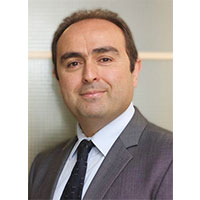
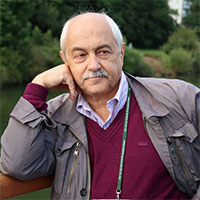
Fabrizio Gagliardi
Fabrizio Gagliardi is the Chair of the ACM Europe Policy Committee (EUACM). He works as Distinguished Research Director at the Polytechnic University of Barcelona and serves as Senior Strategy Advisor at the Barcelona Supercomputing Center (BSC). Dr. Gagliardi has been consulting on computing and computing policy matters with the Commission of the European Union, several government and international bodies. Prior to this and until 2013 he was Europe, Middle East and Africa Director for External Research at Microsoft Research. He joined Microsoft in 2005 after a long career at CERN, the world's leading laboratory for particle physics in Geneva. There he held several technical and senior managerial positions since 1975.
Juan Bicarregui
Juan Bicarregui is Head of the Data Division in the Scientific Computing Department at STFC. Juan’s division has responsibility for research and development of the data systems that handle much of the huge volume of scientific data that is produced by the STFC research facilities. Juan has played a key role in formulating UK policy on opening up access to research outputs and chaired the cross Research Council group which published the RCUK Joint Principles on Data and associated Guidelines. Juan was a member of the steering group that set up the Research Data Alliance and co-chaired of the RDA Organisational Advisory Board.
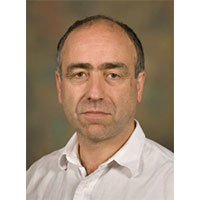
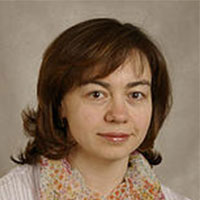
Irina Kuklina
Irina Kuklina graduated from the faculty of psychology of the Leningrad State University, followed by experimental work and lecturing at Kazan State University and coordination of international socio-economic projects in Russian regions, including European part of Russia, Siberia, Far East, Baikal region and Yakutia. Since 2006 she is one of the founders and Executive Director of the International Centre for Innovation in Science, Technology and Education (ICISTE). ICISTE was established in response to raising demand for specialists in the sphere of international STI policy cooperation and leads on the development and implementation of new types of international STI programs with Russia. Areas of interest include science diplomacy and international STI policy cooperation.
Jorge Tezon
Jorge G. TEZON has a PhD in Chemistry from the University of Buenos Aires Argentina. He was a scientific researcher at the National Research Council of Argentina ,CONICET, until 2000 . With a postgraduate training in Science and Technology Program Administration, he is now a member of CONICET managing staff. His area of interest related to this meeting is the promotion and organization of networks for the exchange of scientific data. His has focused is survey in the institutional policies and / or barriers for its implementation.
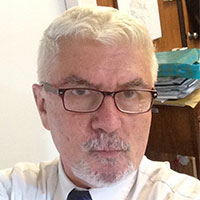
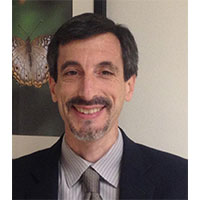
William L. Miller
William Miller is the Science Advisor for the Office of Advanced Cyberinfrastructure (OAC) at the U.S. National Science Foundation. Among his OAC activities, Bill runs the Cyberinfrastructure for Emerging Science and Engineering Research (CESER) Program which supports early-stage science-CI collaborations to catalyze new discovery pathways. A current CESER focus is on fostering scalable CI to enhance data-intensive science associated with NSF’s large research facilities. At NSF, he has held leadership roles in Open Science, large facility project oversight, and agency business operations. Bill has prior professional backgrounds in space mission systems development and experimental neuroscience.
Federico Ruggieri
Prof. Federico Ruggieri, is a senior physicist and Director of Research at INFN (Italian National Institute for Nuclear Physics), Director of GARR, the Italian Research and Education Network and member of the Board of Directors of GÈANT the European Research and Education Network. He spent most of his professional life working on On-Line and Off-line Computing Systems for High Energy Physics experiments at CERN and at Frascati, INFN National Laboratory. He promoted the first GRID project approved and funded by the European Commission. He is also professor of Data Acquisition and Control of Experiments in the Department of Mathematics and Physics of the University of Roma TRE.
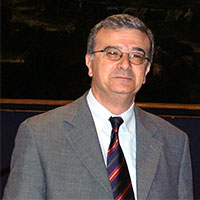
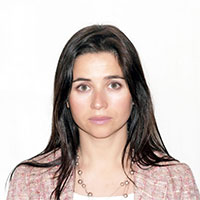
Cristina Martinez
In 2013, Cristina became Head of Sector and then Deputy Head of Unit, of the 'Knowledge-Management' unit in charge of policy, research and regulation integration aspects for the CONNECT Directorate-General. Since July 2016, she is Deputy Head of Unit for the 'eInfrastructure and Open Science Cloud' unit. Besides her management tasks, she is responsible for inter-institutional relations and international policy for the domain. Cristina Martinez graduated in Science Philosophy (Cum laude), has a Master of Communication (Major) and another MSc in Telematics (Cum Laude) from the Université Libre de Bruxelles.
| 9:00 - 10:30 | Plenary session 5: summary of parallel sessions |
| 10:30 -11:00 | Coffee break |
| 11:00 – 13:00 | Plenary session 6: The Way Forward and conference conclusions |
| 13:00-14:00 | Lunch |
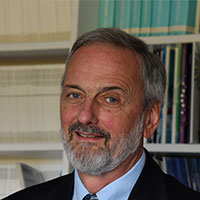
Giorgio Rossi
Giorgio Rossi is Professor of Physics at the Università degli Studi di Milano; he leads the APE (Advanced Photoelectric Effect Experiments) and NFFA group at CNR-IOM and Elettra in Trieste performing research in surface and interface science and operating advanced synchrotron radiation beamlines and in-situ growth laboratories that are open to academic as well as industrial users. He coordinates the NFFA-Europe (Nano Foundries and Fine Analysis) European infrastructure since 2008. He has chaired the Physical Sciences and Engineering Strategy Work group of European Strategy Forum on research Infrastructures (ESFRI) in 2013-2016, and currently serves as ESFRI Chair since July 1st, 2016. He is author or co-author of over 200 research papers in ISI journals.
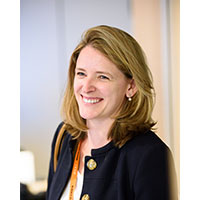
Maryline Fiaschi
Maryline Fiaschi, Managing Director, Science|Business. After six years managing EU education programmes with the European Commission, Maryline entered the media business in 2007. She held business development positions at Shanghai Daily and EU affairs media company EurActiv. She joined Science|Business in 2011 where she now leads the company’s operations and growth strategy. She is also an external evaluator for several EU higher education and research & innovation programmes. Maryline holds degrees from Université La Sorbonne, Università di Bologna and Université Catholique de Louvain.
Wolfgang Burtscher
Wolfgang Burtscher is Deputy Director-General of the European Commission’s Directorate-General for Research and Innovation. An Austrian national, Wolfgang Burtscher acted before joining DG Research and Innovation as a Director in DG Agriculture of the European Commission since 2000. Before his Commission career Mr Burtscher was representative of the Länder at the Austrian Permanent Representation to the EU. From 1992 to 1996 he was Director of European Affairs in the Vorarlberg administration. Previously, from 1990 to 1992, he was a legal advisor at the European Free Trade Association (EFTA) in Geneva, at the time of negotiations on the European Economic Area (EEA). He focused particularly on the free circulation of goods and capital and on competition issues. Between 1983-1990 he was a lecturer in International and European Law at the University of Innsbruck. Wolfgang Burtscher holds a doctorate in law and also has a qualification from the Institut Européen des Hautes Etudes Internationales in Nice.
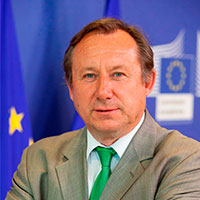
Mikhail Romanovsky
TBC
Paul Dabbar
The Honorable Paul M. Dabbar, Under Secretary for Science, serves as the Department’s principal advisor on fundamental energy research, energy technologies, and science, driving this mission through programs including nuclear and high energy particle physics, basic energy, advanced computing, fusion, and biological and environmental research, and direct management over a majority of the Department’s national labs and their world-leading user facilities. Prior to confirmation as Under Secretary for Science, Mr. Dabbar worked in operations, finance, and strategy roles in the energy sector. As a Managing Director at J.P.Morgan, leading various energy business areas, he has over $400 billion in investment experience across all energy sectors including solar, wind, geothermal, distributed-generation, utility, LNG, pipeline, oil & gas, trading, and energy technologies, and has also led the majority of all nuclear transactions. In addition, he had a senior role for the company’s commodity trading business, including power, oil and gas. Mr. Dabbar received a B.S. degree from the U.S. Naval Academy, and an M.B.A. degree from Columbia University. Mr Dabbar and his wife, Andrea, are the parents of two children.
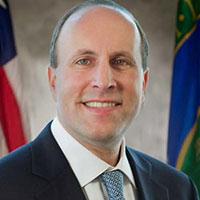
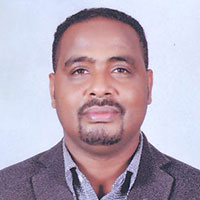
Shumete Gizaw
Assistant professor of Geography and Development Studies. He graduated his first Degree in Geography and Environmental Studies from Dilla University, Ethiopia in 2000. He obtained his Masters Degree in Development Studies from Norwegian University of Science and Technology, Norway. He did his PhD in Addis Ababa University on Sand-witch basis with the Norwegian University of Science and Technology, Norway. He served in university with the capacity of all academic ranks ranging from Graduate Assistant to Assistant Professor. He also served in various University administrative positions ranging from Department head to Academic and Research Vice President of Dilla University. For the last two and half years he has been working in the Ministry of Science and Technology. Currently he is a State Minister for the Ministry of Science and Technology and Responsible for Research & Technology Affairs. Academically, he has been lecturing various courses in both Undergraduate and Postgraduate classes. He has been consulting various organizations on the affairs of Environment, Development and Technology transfer. He is also adjunct staff in Addis Ababa University for advising and lecturing postgraduate students at Masters and PhD level. He is also a researcher and has more than 15 publications in reputable national and international journals. He is also a motivational and inspirational speaker.
Roseann O'Reilly Runte
Roseann O'Reilly Runte is the President and CEO of the Canada Foundation for Innovation. She has led a number of universities in Canada and the U.S. and has played a role in the economic development of the regions in which they were located. A member of the board of a number of businesses including the National Bank of Canada, LifeNet and Jean Coutu, she has also served as President of the Canadian Commission for UNECO, of the Foundation for International Training and as a member of the executive of the Club of Rome and the Royal College of Physicians and Surgeons. She has been a member of the Virginia Industrial National Development Authority, the Virginia Advanced Shipbuilding Integration Center, the Ontario Québec Private Sector Advisory Committee and the Advisory Board for SunGard SGT. She has a Ph.D. from the University of Kansas.
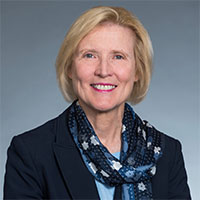
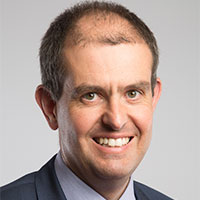
Daan Du Toit
After several years in Brussels promoting South Africa's science and technology interests in Europe, Daan du Toit has returned to Pretoria as Deputy Director- General: International Cooperation and Resources. Initially, from 2003 to 2006, Mr Du Toit was the Director: Strategic Partnerships at the Department, responsible for establishing a mechanism for leveraging resources to support South Africa's science and technology capacity, and he was instrumental in the creation of the European South African Science and Technology Advancement Programme (ESASTAP). From 2006 Mr Du Toit moved to Brussels to serve as the Department's representative to the European Union. In April 2013 Mr Du Toit was appointed as Chief Director: International Resources, with the responsibility of overseeing the work of the Strategic Partnerships, Development Partnerships and Global Projects units.
Barbara Weitgruber
Director General for Scientific Research and International Relations, Austrian Federal Ministry of Education, Science and Research (BMBFW). Barbara Weitgruber was founding staff member and Director of the Office for International Relations and lecturer at Karl-Franzens Universität Graz, Austria and then Director of the Office for European Educational Co-operation of the Austrian Academic Exchange Service in Vienna, Austria. In December 1994 she joined the Austrian Ministry in charge of higher education and research as Director and later became Deputy Director General for Higher Education and Director General for Scientific Research and International Relations. She also is a member in numerous committees, including the Task Force for Research, Technology and Innovation of the Austrian Federal Government and the European “Research Policy Group” and chairs the Austrian Fulbright Commission as well as the Scholarship Foundation of the Republic of Austria.
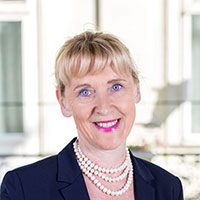
Several public Satellite meeting might be taking place in parallel, centered around strategic thematic areas of this or past ICRI conferences.
If you plan such public meeting, the ICRI organisation will gladly advertise your event on the conference webpage.
Please provide us with the purpose of your plan meeting for evaluation.
The organisers regret to inform that there is no capacity to accommodate or support the organisation of satellite events. People interested in organising satellite events or side meetings should enquire at their hotels or could for instance check the following websites:
MedAustron is a synchrotron particle accelerator located in Wiener Neustadt, 40km from Vienna, which focuses on cancer therapy with ion beams. Currently only proton beams are used. In the near future, however, also carbon ions and other ion types will be available.
When not being used for treatment, for instance at night or at the weekend, the ion beam is also available for use by universities for non-medical research.
A tour of MedAustron would take about an hour, and would be possible on:
Wednesday, 12 September, 2018, 10:00 – 11:00, followed by lunch, or,
Friday, 14 September, 2018, 15:00 – 16:00
The tour will be available for a maximum of 20 persons per visit.
A bus will bring participants to and from the MedAustron.
Interested participants should register by sending an email
to ICRI2018@bmbwf.gv.at by 31 August, 2018.
Please note that this event is by invitation only. Registration to this event is separate from the ICRI 2018. For questions regarding the ESFRI RM 2018 Launch Event,
please contact info@str-esfri.eu
esfri 2018 launch roadmap website
Research Infrastructures are invited to provide roll-ups (100x202,5 cm (220)) for the exhibition. As the Austrian EU Council Presidency follows a paperless policy, there is no need to bring brochures. However, organisers would appreciate web links on the different Research Infrastructures taking part in the conference in order to share them with interested parties on the ICRI website.
HOFBURG Vienna is located in the historical complex of the former imperial residence, which stands at the heart of downtown Vienna near the Ringstrasse and St. Stephen’s Cathedral. It can be said that the Hofburg – with 19 courtyards, 54 staircases and some 2,600 rooms with a total floor space of more than 250,000 m2 – has developed unsystematically over the centuries to become one of thebiggest secular buildings in Europe and an impressive monument to Austrian history. Today the Hofburg is used by several institutions for political activities and as museums and tourism facilities.
© Hofburg Vienna
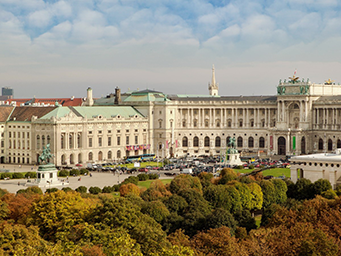
From the airport to the city centre
Vienna Internaional Airport is about 16km from Vienna city centre and is easily reached by public transport
The fastest way is to use the City Airport Train (CAT) which connects the aiport to the city centre “Landstraße/Wien Mitte” in 16 minutes. Trains leave from the airport every half an hour at 09' 39'. Tickets can be bought at the self-services tickets machines at the airport station. A return ticket is slightly cheaper than two singles and is valid for six months.
City Airport Train
The Express Train S7 is also an efficient way of reaching the city centre and takes 25 minutes to reach “Landstraße/Wien Mitte”. It stops at other stations in the centre. These trains also leave every half an hour and tickets can be bought at the self-services tickets machines at the airport station.
Express train S7
The Vienna Airport Lines buses serve Vienna city center, the Donauzentrum via Vienna International Centre (VIC), the Westbahnhof and Vienna Main Station. Buses take between 20 and 30 minutes depending on the location. More information on the individual destinations can be found here:
Vienna Airport Lines
It is very easy and efficient to get around Vienna by public transport
Single tickets cost € 2.40 and will take you to your destination (including changing modes of transport). There are however, 24-hour, 48-hour and 72-hour tickets. More information can be found here:
Tickets
The easiest way to find out how to get to your destination within Vienna is to use Qando. More information on how to download Qando can be found here:
Qando
The following link provides you with all the practical information you will need for your trip to Vienna including emergency numbers, lists of embassies and information about money.
Tourist Info
Conference participants who are bringing roll ups with them from outside the EU, or from outside the Community Value Added Tax system, would be advised to bring their roll ups with them in their luggage, when they arrive at Vienna Airport and when they leave. This is to avoid paying customs duties for the roll ups. You will need to fill out a Za246 form (link) at the at the customs office at Vienna airport and declare, that the roll up will be used for temporary professional practice at a congress in Vienna only and then be taken home again. A deposit can be waived then by the customs office having the corresponding service instructions.
However in the case of separate shipping in advance or afterwards the application for temporary admission for professional use would require the filing of a standard customs declaration by the carrier (forwarding agency) and in this case a security deposit would be required in any case.